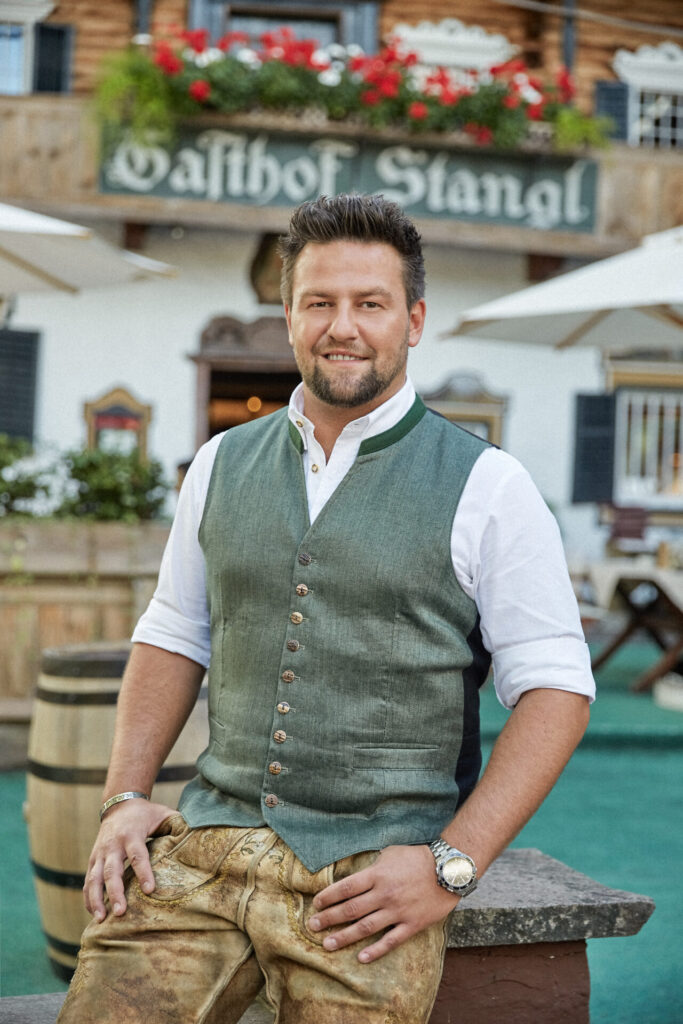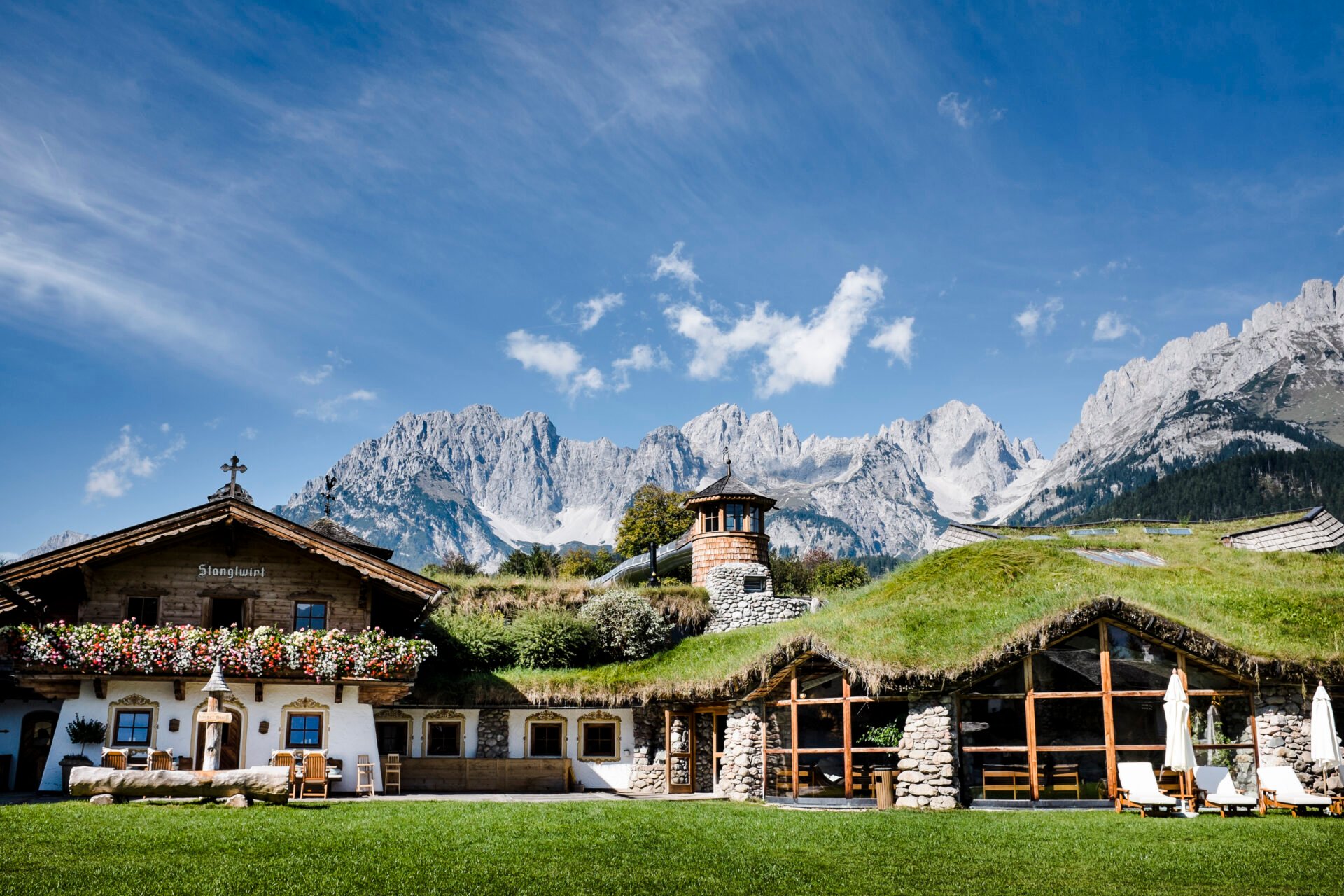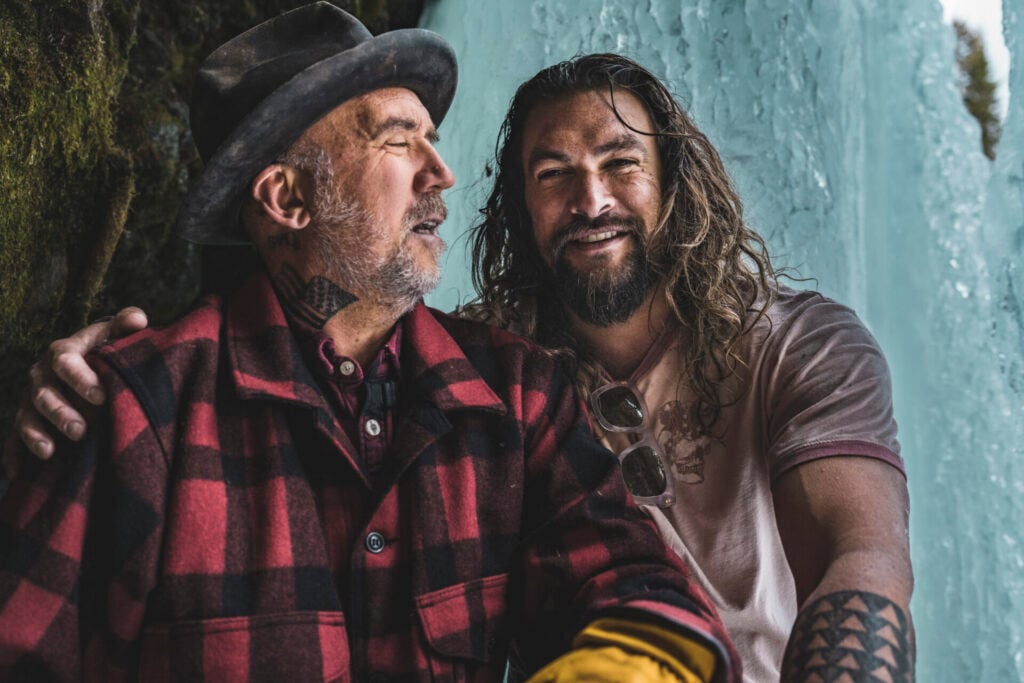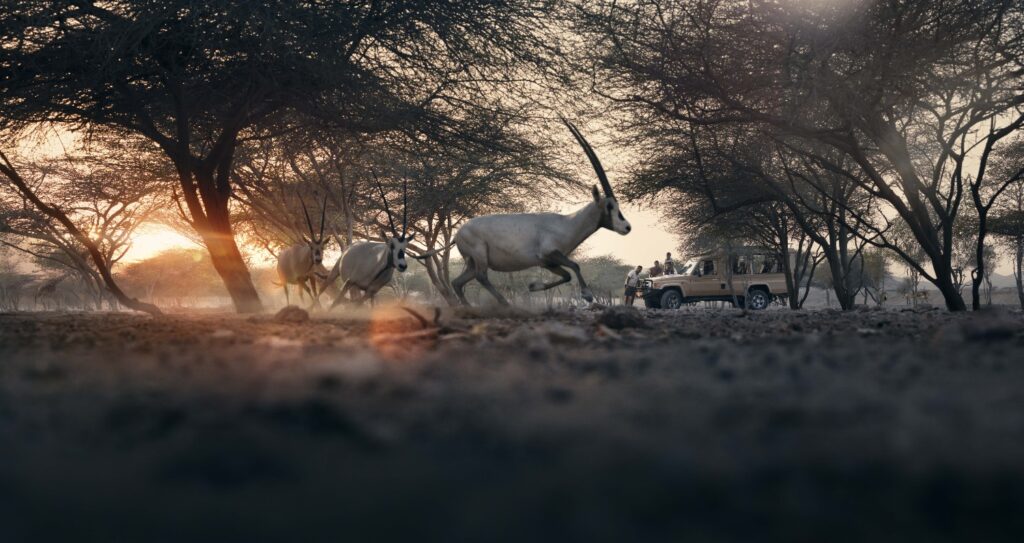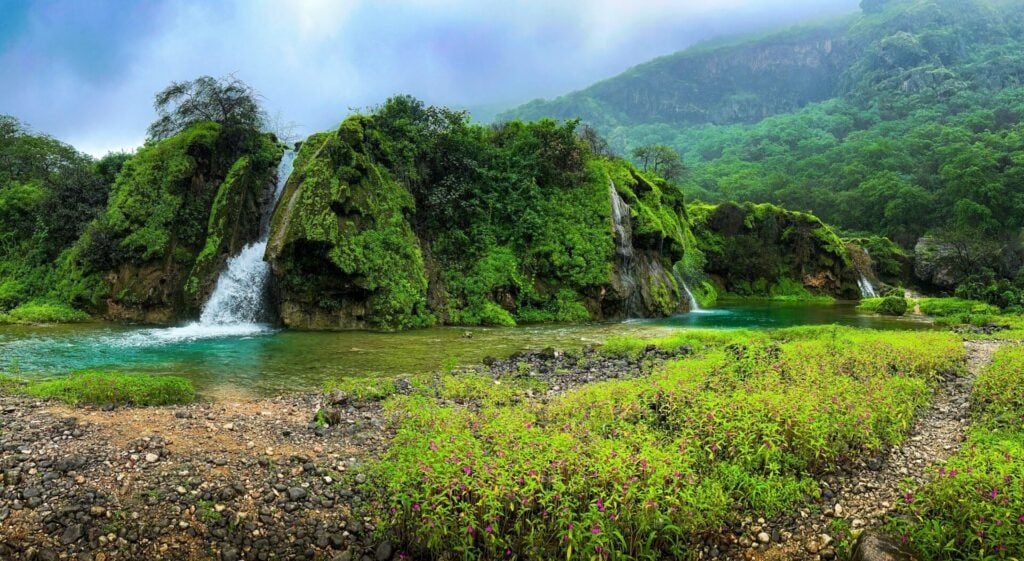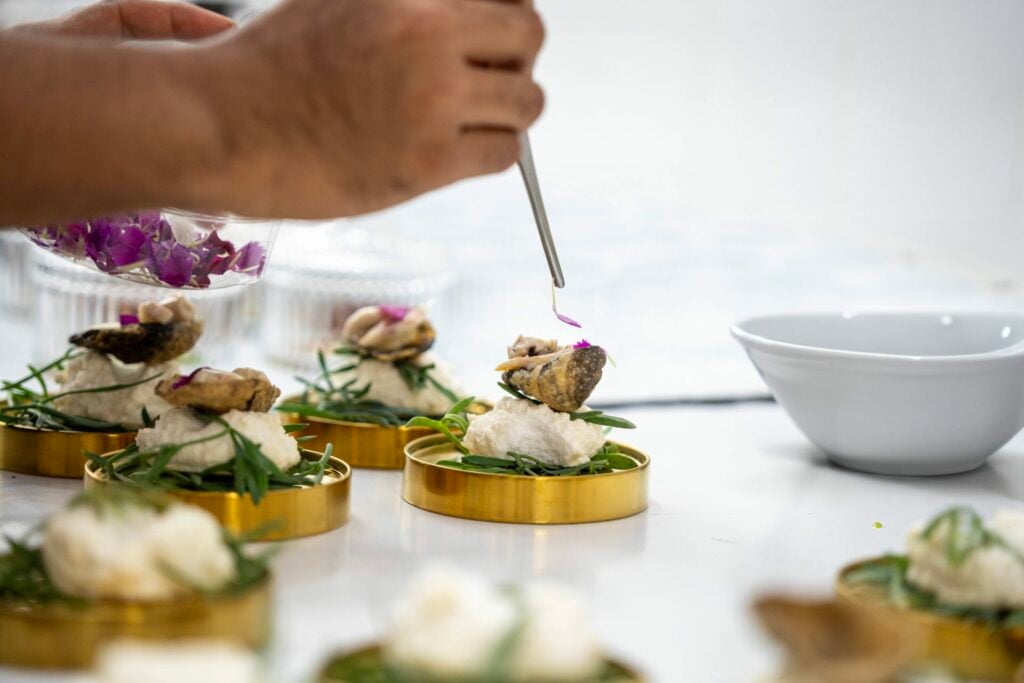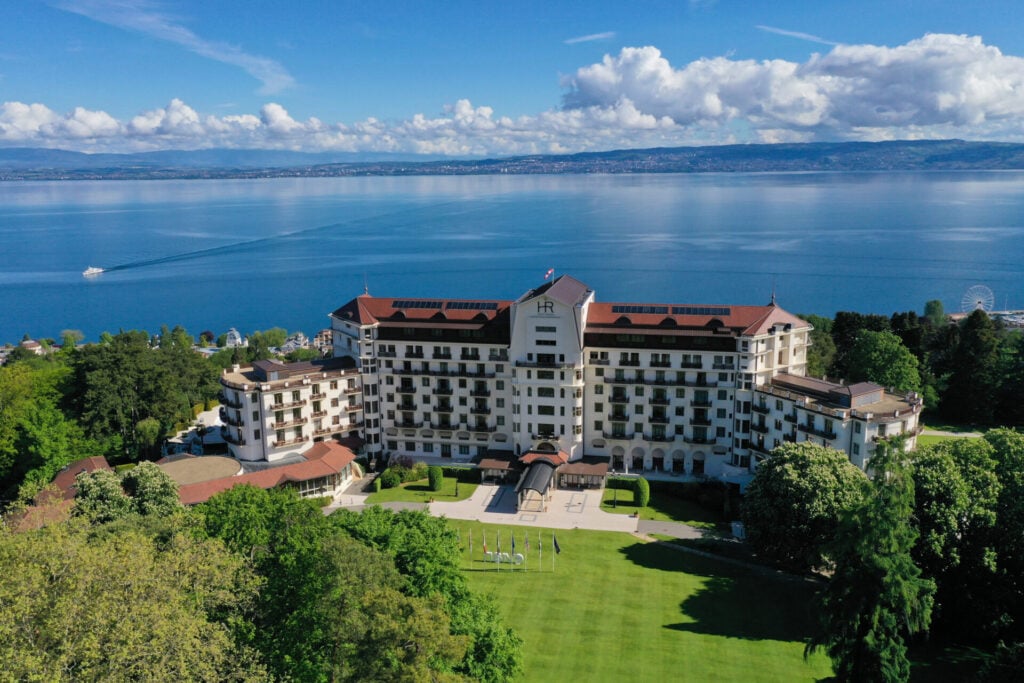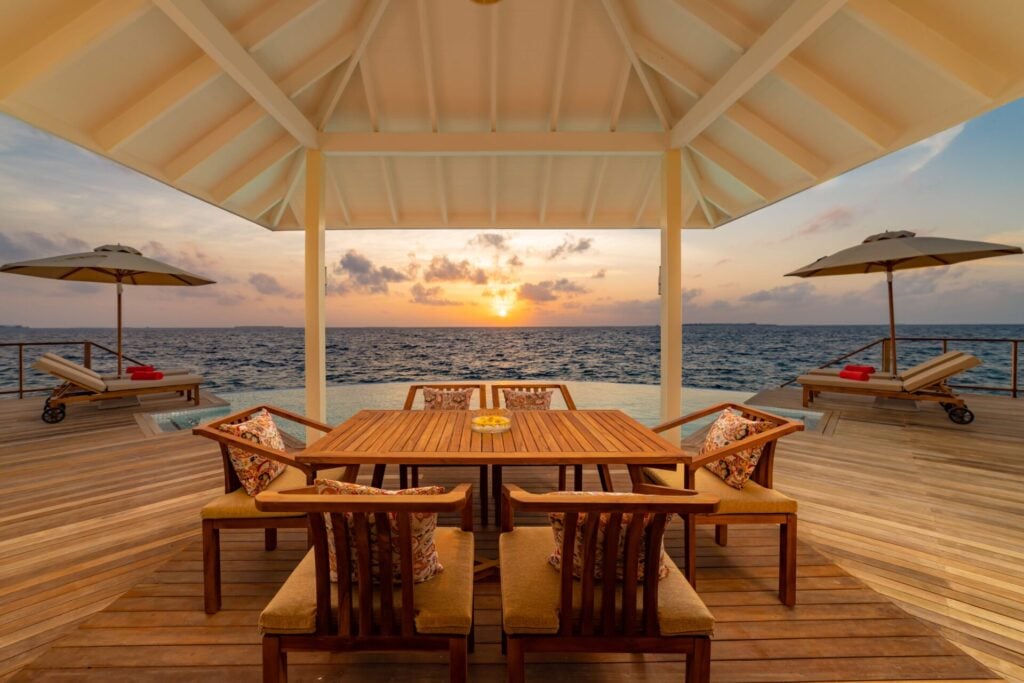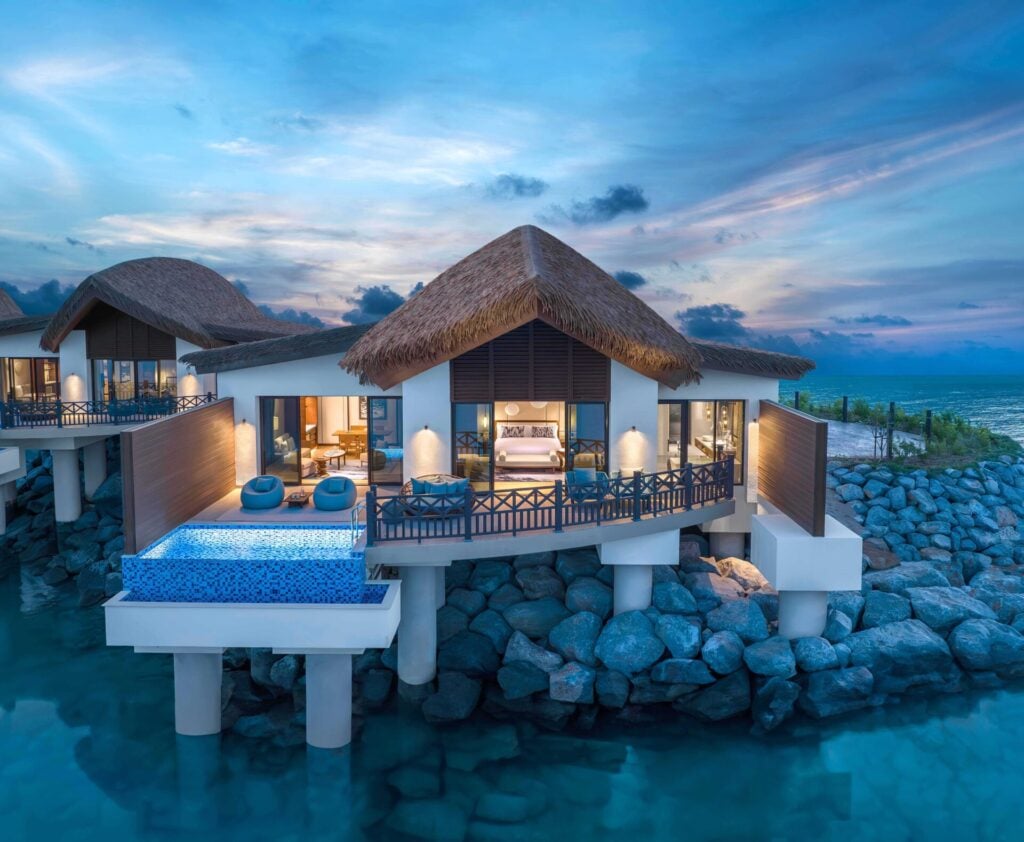Tucked at the foot of Austria’s Wilder Kaiser mountains, the Bio- and Wellness Resort Stanglwirt was a pioneer of sustainable hospitality long before eco-luxury became a buzzword. In the Hauser family since 1722, the five-star property, which is still run as a working farm and wellness retreat, became Europe’s first eco-hotel powered entirely by biomass and thermal energy back in the 1980s, setting a precedent that few have matched since in the hospitality industry.
Today, that vision continues through Johannes Hauser, Director of Agriculture & Gastronomy and a member of the founding family. From a 400-year-old farmstead to a state-of-the-art bioenergy plant that generates heat and electricity from regional wood waste, Johannes oversees everything from field to fork, farm to spa, and even barn to bar.
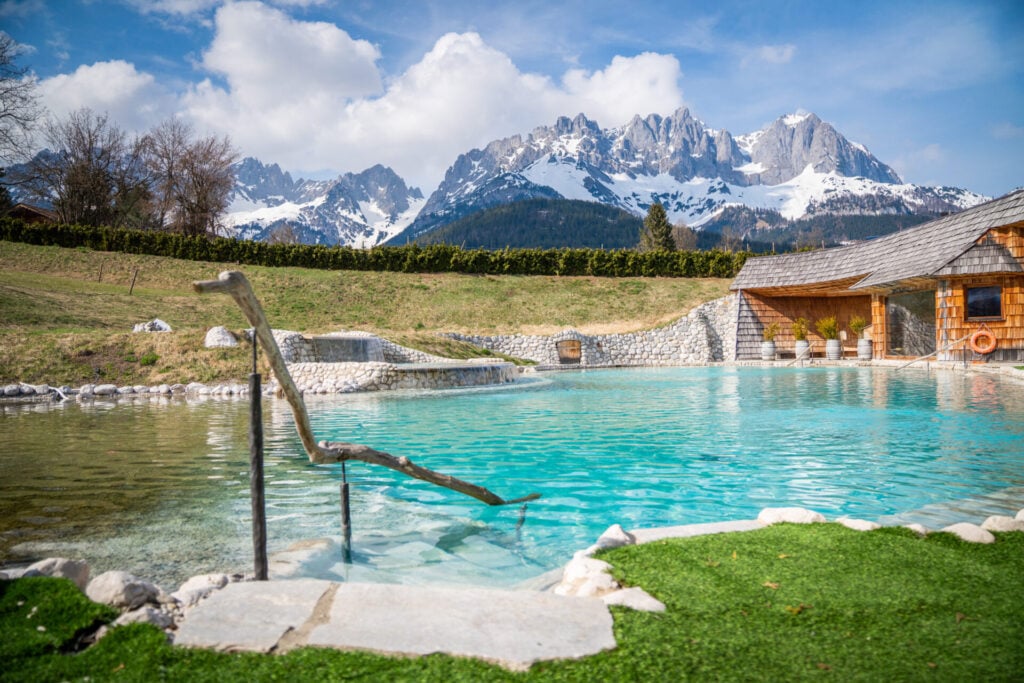
The bioenergy plant and the hotel’s own mountain springs, also power Stanglwirt’s Rock Well-Being World – a favourite among celebrities, athletes and wellness travellers. Guests can swim in a 517 m² chemical-free natural lake kept clear via plant and rock filtration, float in Europe’s largest brine pool fed with saltwater from nearby Bad Reichenhall, or unwind in a dramatic rock grotto carved from 750 tonnes of Wilder Kaiser stone.
But while guests come for the views and wellness, it’s the Hauser family’s long-lasting belief in working with nature that defines Stanglwirt. On a recent visit, The Ethicalist sat down with Johannes to understand what keeps that philosophy alive, and why it still matters as much today as it did four centuries ago.
TE: Stanglwirt has been a farm since 1609. How has it evolved into what it is today?
Johannes: We’ve always been both farm and host. For us, those two worlds belong together. We’re probably one of the last five-star hotels in the world that still has its own working farm right inside the property. After the war, many families separated the two because of the smell or inconvenience, but our ancestors kept it. And today, that decision feels visionary, people come because of the farm.
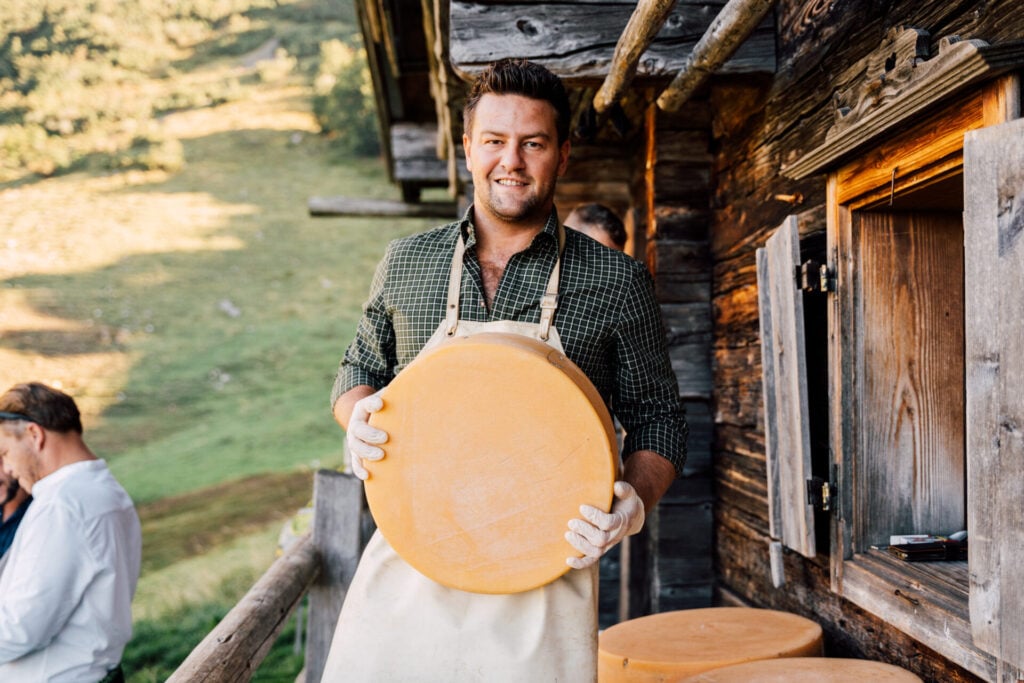
But we never wanted it to be a “show farm.” It’s a fully functioning operation: we milk our own cows, make our own cheese and yoghurt, and even have an in-house butchery. When I came back from working abroad, I realised the only way to do it right was to produce our own products, a full circular economy. Everything runs in a closed loop. Our cows live long, healthy lives; we don’t use sexed semen or push them for extreme milk yields.
My father wanted me to brew beer at the hotel, but I supported a friend’s local brewery instead and make it with him every month. The same goes for our bakery: we bake what others don’t, and we buy what they do best.
We also have a natural stone cellar in the mountain where we cure our cheeses. We make what’s called ‘red-culture’ cheese, and each batch stays here for about three months before moving to a mountain cave. The stone walls there let minerals seep naturally into the cheese while keeping the climate perfect without refrigeration. We can age them for up to two years that way.
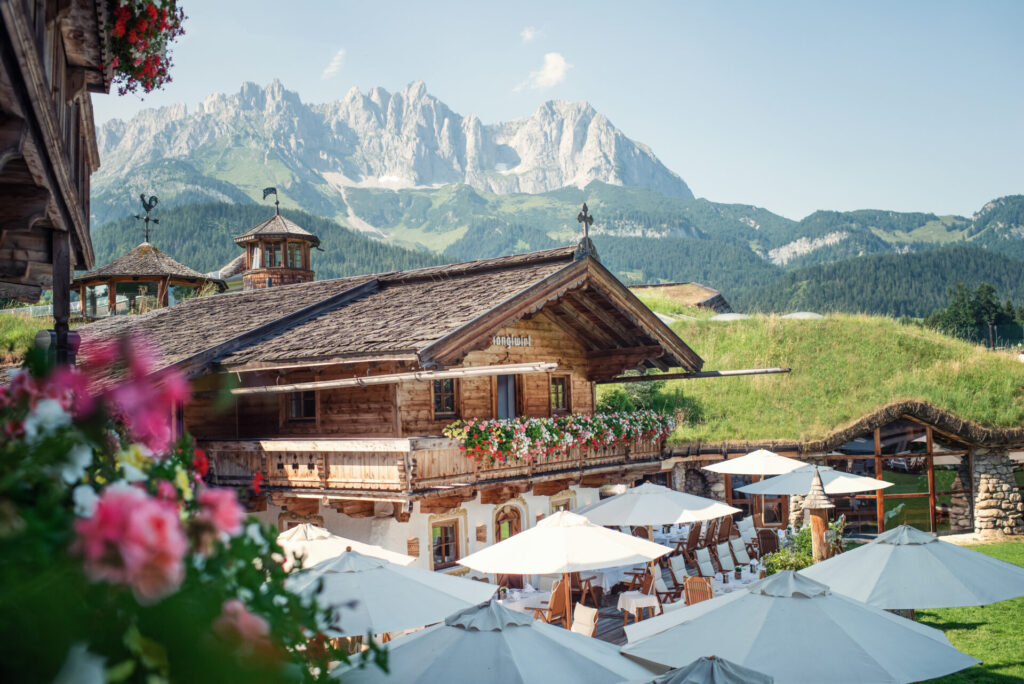
TE: Stanglwirt was the first hotel in Europe to use biomass heating back in the 1980s. How does your new bioenergy system build on that legacy?
JH: The old biomass plant was groundbreaking at the time but after 40 years it needed renewal. I wanted to go even further to create something that produces both electricity and heat CO₂-positive.
Instead of burning wood, we glow it under vacuum. The wood gas that’s released runs a motor to generate electricity, and the heat is stored in a 60,000-litre water tank for the hotel and the farm. It’s incredibly efficient.
What’s left at the end isn’t ash but biochar, a kind of plant coal that stores carbon for thousands of years. We use it as fertiliser and sell it for sustainable uses like steel production. So, instead of sending waste to landfill, we’re creating a carbon sink.
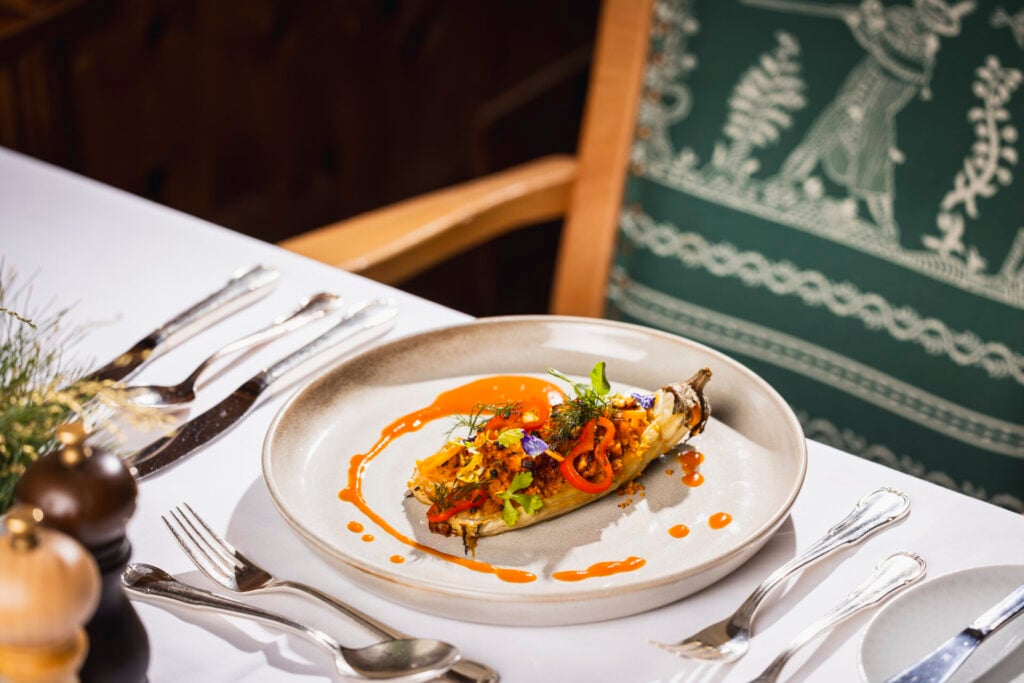
TE: How much of your food comes from your own farm, and how much do you source locally?
JH: From our farm we mainly supply milk products and some meat, not vegetables, because we need so much volume. But all our suppliers are from Tyrol. The goal is always to keep the economy alive here.
‘When I came back, the first thing I did was get rid of big- brand drinks. Guests thought I was crazy! But I’d seen in Asia how global corporations can dominate local water supplies, and I wanted to support smaller, local producers instead’
For example, when I returned from Hawaii, where we had fantastic microgreens, I introduced the idea here. At first we grew them ourselves, but then a local supplier offered to do it for us, which made more sense. Everyone wins: they have more work, and we save labour.
It’s the same with beer and bread. My father wanted me to brew beer at the hotel, but I’d rather support a friend’s local brewery and make it with him every month. The same goes for our bakery: we bake what others don’t, and we buy what they do best.
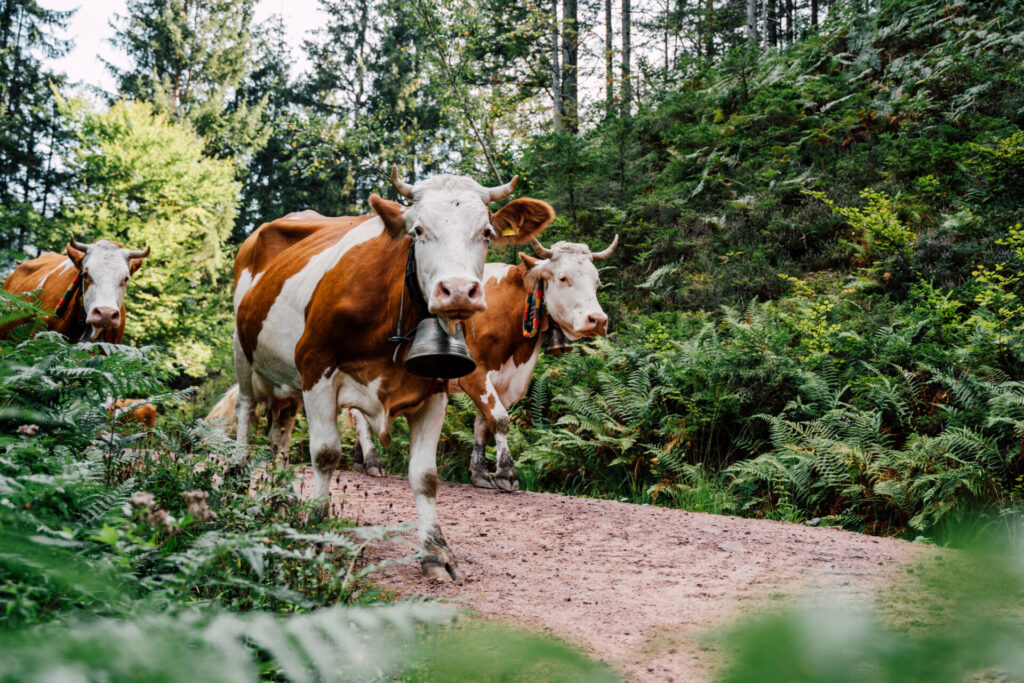
TE: You’ve also been known to make bold choices about what’s served at Stanglwirt.
JH: (laughs) Yes, when I came back, the first thing I did was get rid of big-brand drinks. Guests thought I was crazy! But I’d seen in Asia how big corporations can dominate local water supplies, and I wanted to support smaller, local producers instead.
At first, guests complained, but we found great local alternatives like a cola made with pine needles, for example, and regional mineral water. Over time people understood. And even brands like Nespresso have changed: they’re now B Corp certified. I like to think that when enough people take a stand, it pushes the big players to change too.
‘I believe in regional energy, using what’s around you. If you live in the desert, use solar. If you live by the ocean, use wind or hydropower. We live among forests, so we use wood. It’s simple and it makes sense’
TE: Have you noticed a growing demand for vegan or vegetarian food?
JH: Definitely. When vegan dishes first appeared, everyone said you needed them, but hardly anyone ordered them. Now that’s changed. Guests are more curious, more aware. I’m very happy about that because it encourages us to keep developing the menu.
We still serve traditional Austrian food, but with more balance and creativity. We have a new Mediterranean-style restaurant focusing on healthy, regional produce that feels good for you and for the planet.
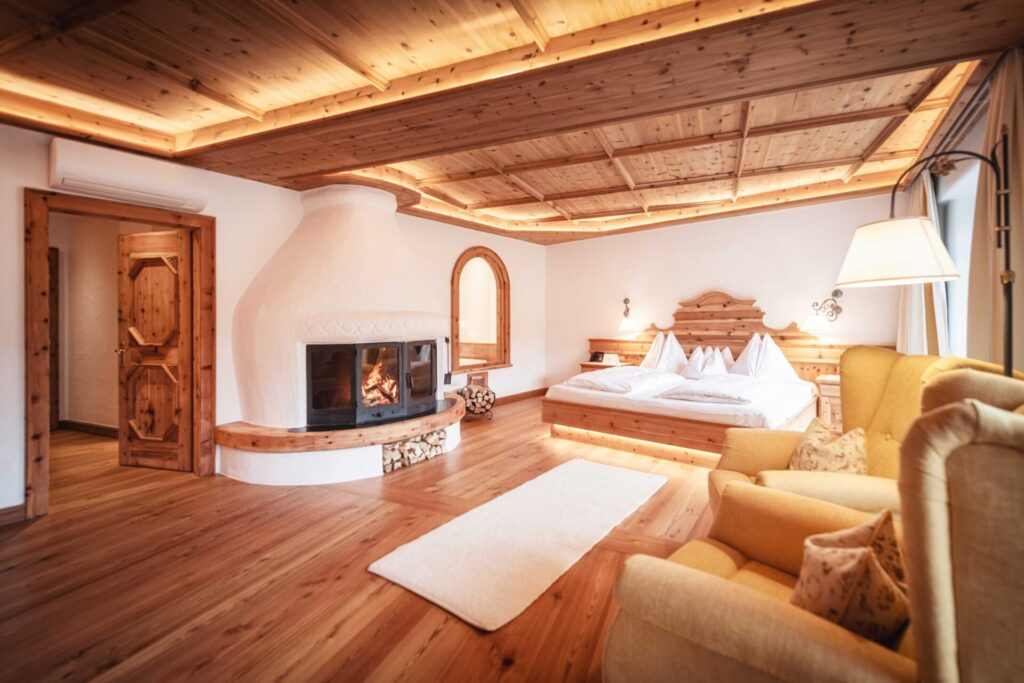
TE: You speak with such passion about local energy and produce. What’s at the heart of that philosophy?
JH I believe in regional energy, using what’s around you. If you live in the desert, use solar. If you live by the ocean, use wind or hydropower. We live among forests, so we use wood. It’s simple and it makes sense.
Everything we do at Stanglwirt, from the cheese to the biochar, comes from the same idea: respect for nature, for animals, and for the community that sustains us.
For reservations visit staybeyondgreen.com
